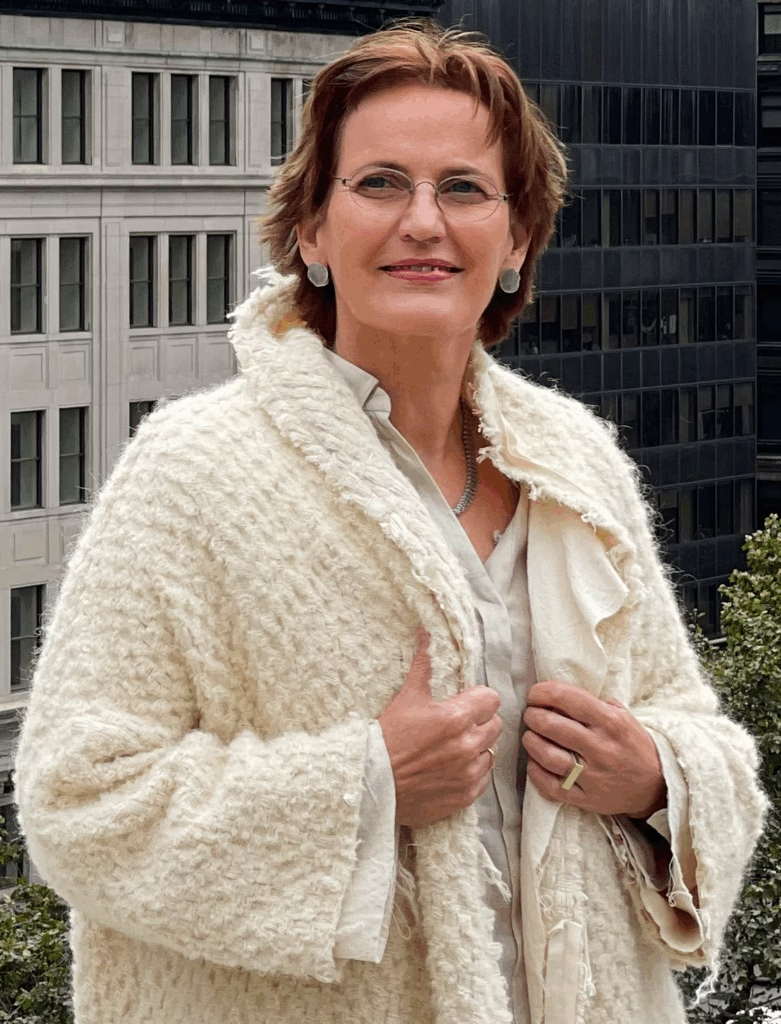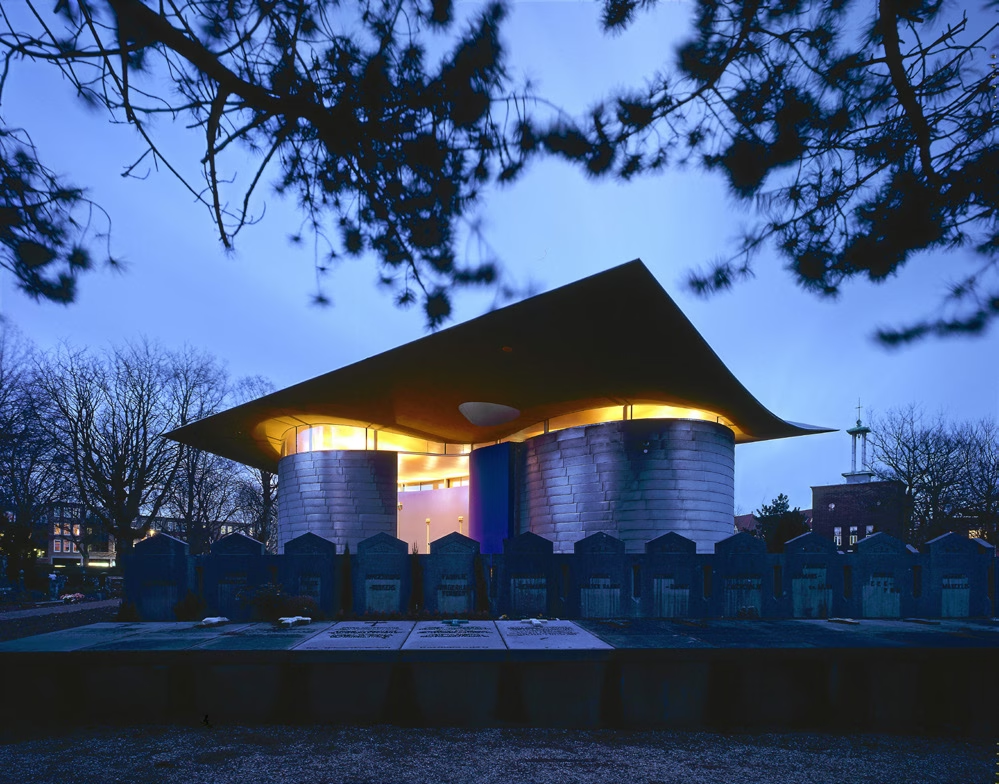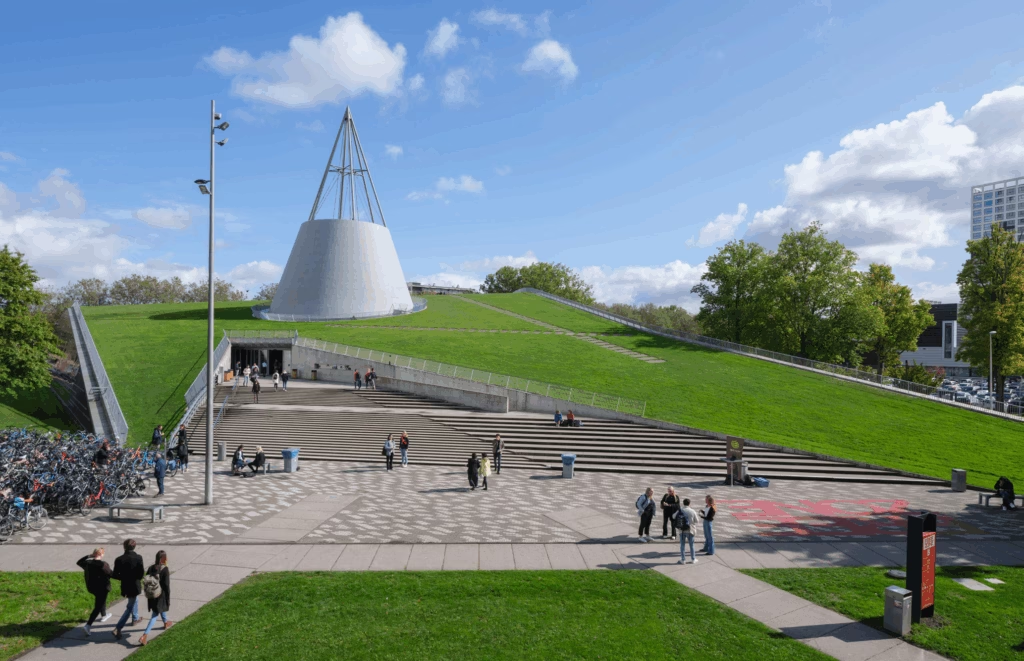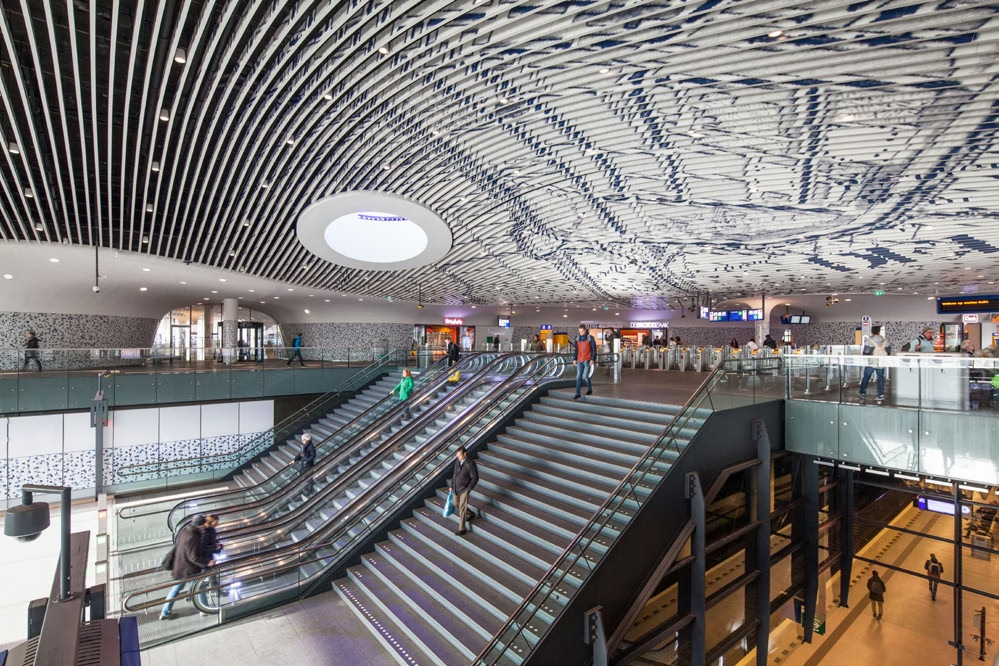
Francine Houben
Co-Founder and now Principal of award-winning Dutch practice Mecanoo, who deliver progressive designs globally. Work which is grounded in human-centric, socially relevant, contextual designs, which they believe to be essential as architects create spaces that deliver not only form, but emotion
There’s an expression for something that just doesn’t make sense — it has ‘no rhyme or reason’. What about the opposite? Something with ‘reason’ follows some logic, it has a purpose and it suggests that it is there by design. Clearly, architecture has this sort of reason. But what about ‘rhyme’? The word usually applies to poetry. A poem is a composition that can resonate deep in our mind, generate emotion, conjure up magic, and evoke memory, either personal or collective. These are elusive things. They don’t come from instructions in a design manual, but our intuition senses and finds them. If we can add rhyme to reason in architecture, it becomes poetic, and it is great architecture. That is what we find with the work of Mecanoo.
Mecanoo was founded in the Netherlands in 1984 by a group of student architects including Francine Houben. She is now its principal and creative director, and its base remains in the historic city of Delft. Nowadays, Mecanoo is a global practice, with projects in four continents. Wherever their work is, what has always made it special has been a humanistic approach. That means that it recognises the individual as someone unique, with innate dignity and goodness, capable of emotional fulfillment that can be encouraged by the right conditions. Architecture can be a benevolent agent, with a mission to help deliver the potential we all have, individually and collectively. Mecanoo’s designs are progressive and social, because they are rooted in an intimate concern and sensitivity for people. Every design considers what people do in real life and makes it better — it creates space you want to be in, in which you feel human, and when it brings people together, it gives you social relevance.
Mecanoo also designs with a passion for place. Each space is crafted according to its location, and aims to make it even better without making it somewhere else, or (as with so much architecture) nowhere in particular. Every site for which a project is designed has certain elements that should make it unique. A project can draw on and enhance the assets of a location, for example its history, architecture, landscape or lifestyle. It can also address the deficits of a location, for example by bringing facilities or identity where they are lacking. A Mecanoo project creates a new place with its own presence, but it is defined by, and unique to, the place that is already there.


Every architectural commission has a purpose, or function, to deliver. That may be to house people, host cultural activity, create a workplace or deliver a transport link. Formulaic design can produce solutions to serve each purpose, but if the concerns of the users are at the core of the design and it is contextual to its location, the purpose itself is enhanced.
Mecanoo is prolific as well as progressive, and nowadays, it has never been more productive. Unlike many practices, Mecanoo has never had a ‘visual signature style’, so there is a surprisingly diverse range of new Mecanoo designs, from a futuristic arts centre with the largest roof of any in the world to a small chapel in a cemetery.
The practice combines the disciplines of architecture, urban planning, landscape architecture and interior design to produce unorthodox design solutions born from a strong sensitivity to context and a highly interdisciplinary design process. Each project responds to our philosophy of People, Place, Purpose, Poetry: to the client’s requirements and the user’s needs (People); the physical context, climate and culture (Place); and the current and predicted potential of a building’s function (Purpose), creating designs that touches all the senses (Poetry).
Francine Houben was professor of mobility aesthetics at Delft University of Technology and taught at the universities of Harvard, Yale and Mendrisio. As curator of the First International Architecture Biennale Rotterdam (2003), she brought the theme of the aesthetics of mobility to the forefront of international design consciousness.
Francine holds Honorary Fellowships of the Royal Institute of British Architects (RIBA), the American Institute of Architects(AIA), the Royal Architectural Institute of Canada (RAIC) and was granted lifelong membership to the Akademie der Künstein Berlin as well as receiving the International Honorary Fellow Award by the Architecture Institute of Taiwan.
In 2014 Francine was named Woman Architect of the Year by the Architects’ Journal and in November 2015 Queen Máxima of The Netherlands presented her with the Prins Bernhard Cultuurfonds Prize for her wide-ranging career. Francine was awarded Honorary Doctorates from the Université de Mons, Belgium (2017) and the Utrecht University (2016).
In 2018 she received the BNA Kubus Award for her oeuvre; the International Prize, Prix des Femmes Architectes (2019) and distinguished with the TU Delft Alumnus of the Year (2020). In 2021Mecanoo and Francine were presented with the European Prizefor Architecture.
“Architecture must appeal to all the senses. Architecture is nevera purely intellectual, conceptual, or visual game alone. Architecture is about combining all the individual elements into a singleconcept. What counts in the end is the arrangement of form andemotion.”

